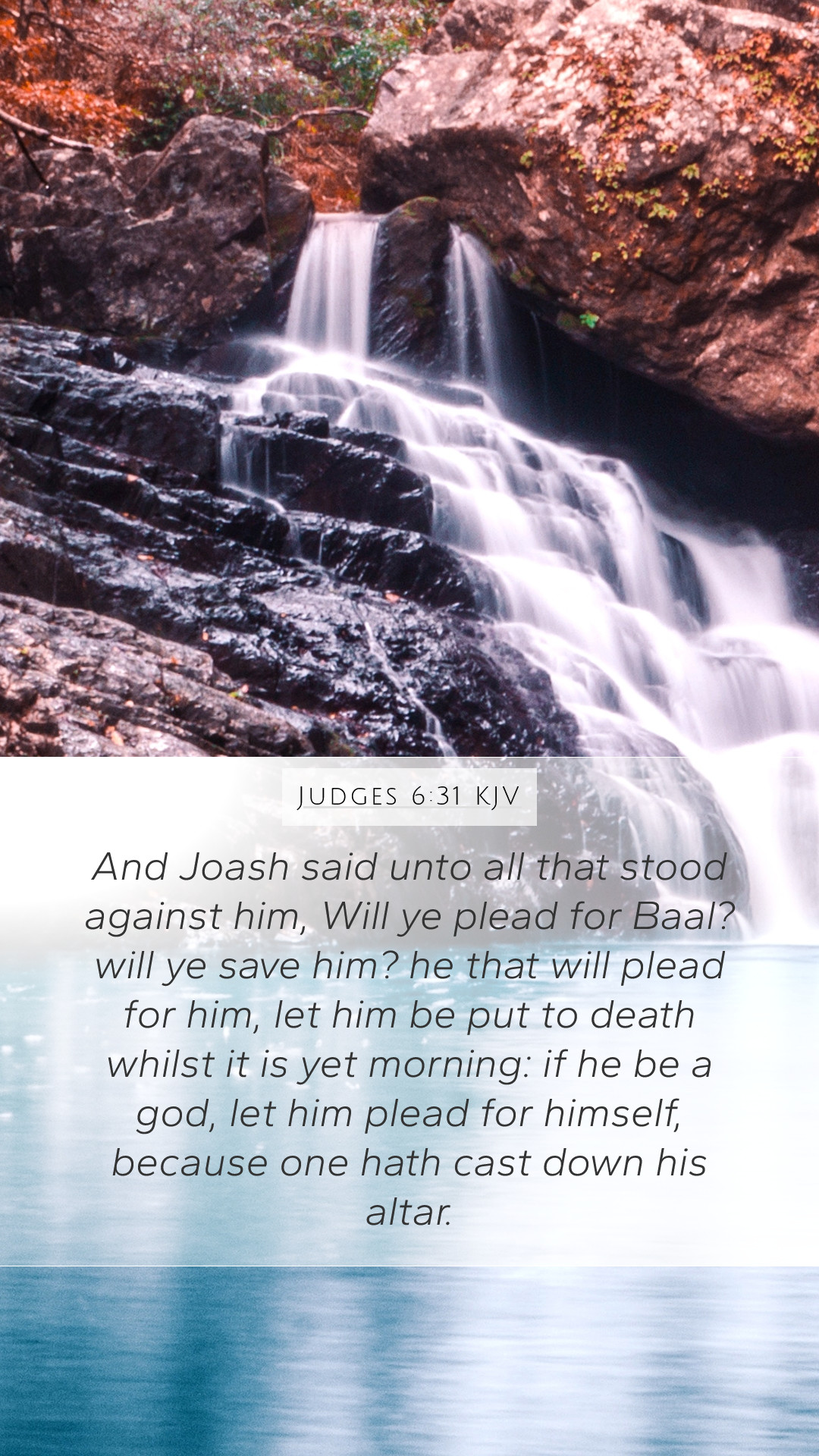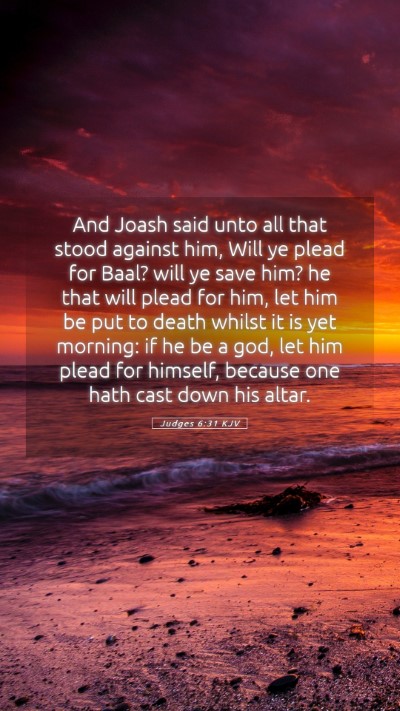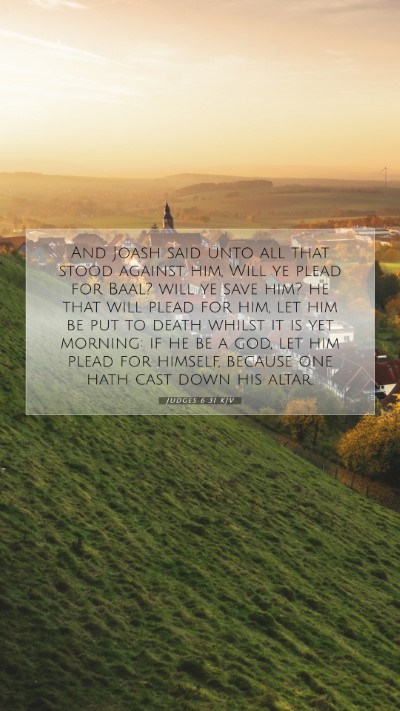Bible Verse Meaning and Commentary on Judges 6:31
Judges 6:31 states, "And Joash said unto all that stood against him, Will ye plead for Baal? will ye save him? he that will plead for him, let him be put to death whilst it is yet morning: if he be a god, let him plead for himself, because one hath cast down his altar." This verse is part of the narrative involving Gideon, who is called by God to deliver Israel from the Midianite oppression. The verse highlights Joash's defense of his son Gideon and serves to underscore the futility of idol worship.
Key Themes and Meanings
Numerous public domain commentaries provide insights into this verse, enriching our understanding of its meaning:
- Idolatry's Futility: Joash's rhetorical questions emphasize that if Baal is indeed a deity, he should be able to defend himself. This notion speaks to the overarching Biblical theme that true power resides in the God of Israel, not in lifeless idols. As Matthew Henry suggests, Joash indicates that those who follow idols invite their own doom.
- Defense of Faith: Joash's conviction in defending his son and God's cause illustrates the importance of standing firm in one's faith, especially when facing opposition. Albert Barnes notes that Joash's response not only protected Gideon but also highlighted the absurdity of seeking to save an idol.
- Courage in Confrontation: Gideon’s action of destroying the altar of Baal was a bold declaration against prevailing idolatry. Adam Clarke emphasizes that Joash's firm stance against the worship of Baal serves as a critique of Israel's lapse into idolatry.
- Divine Justice: The call for those who would defend Baal to face execution reflects the seriousness of upholding fidelity to God and the consequences of disregarding His commandments. This reinforces the biblical principle of accountability in worship. Matthew Henry observes the lesson in this for Israel, nudging them back to the worship of Yahweh.
- Human Responsibility: Joash's challenge invites believers to question their own faith and commitment. Are we defending false gods in our lives, or are we upholding the truth of God? As Barnes notes, the passage compels the reader to examine where their loyalties lie.
Applications and Insights
Understanding Judges 6:31 poses significant applications for individual believers and communities:
- The Question of Idols: Identifying modern-day idols in our lives requires introspection. Just as Joash challenged the notion of defending Baal, Christians must confront what they prioritize over God.
- Encouragement in Faith: Joash’s defense of Gideon is a reminder that support within the community of believers is essential for standing against cultural pressures.
- Boldness in Action: Reflecting Gideon’s courage invites us to take decisive action against societal norms that contradict God's Word, heralding a lifestyle of obedience and faithfulness.
Related Bible Cross References
- Exodus 20:4-5: God's command against idolatry.
- 1 Kings 18:21: The challenge to Israel during Elijah's contest with the prophets of Baal.
- Psalm 115:4-8: A psalm that highlights the impotence of idols.
Conclusion
In summary, Judges 6:31 serves as a powerful reminder of the truth and might of God contrasted with the emptiness of idol worship. Through the lens of historical context and theological insight, we see the importance of actively choosing loyalty to God and standing firm in faith. For those engaged in Bible study groups or seeking scripture analysis, this verse and its surrounding context provide profound insights into the enduring struggle between divine worship and idolatry, urging believers towards a deeper understanding of Scripture.


